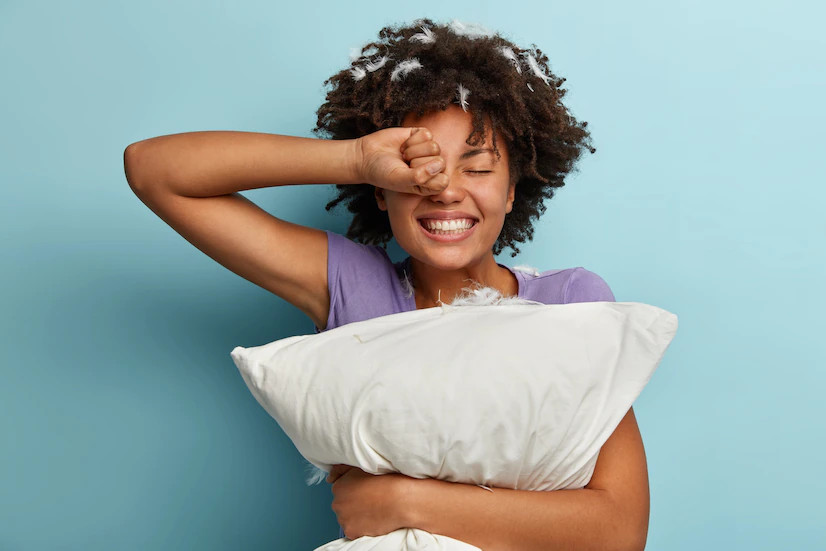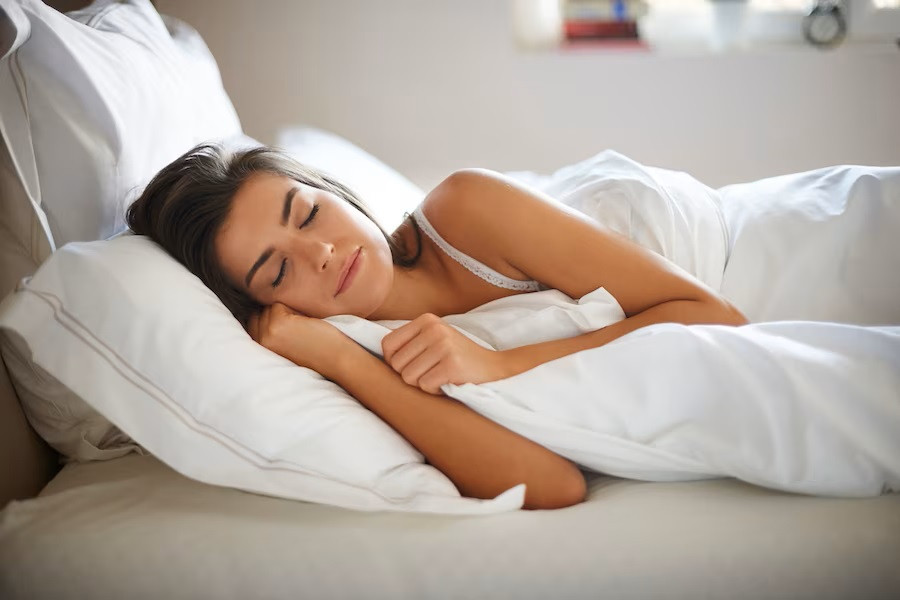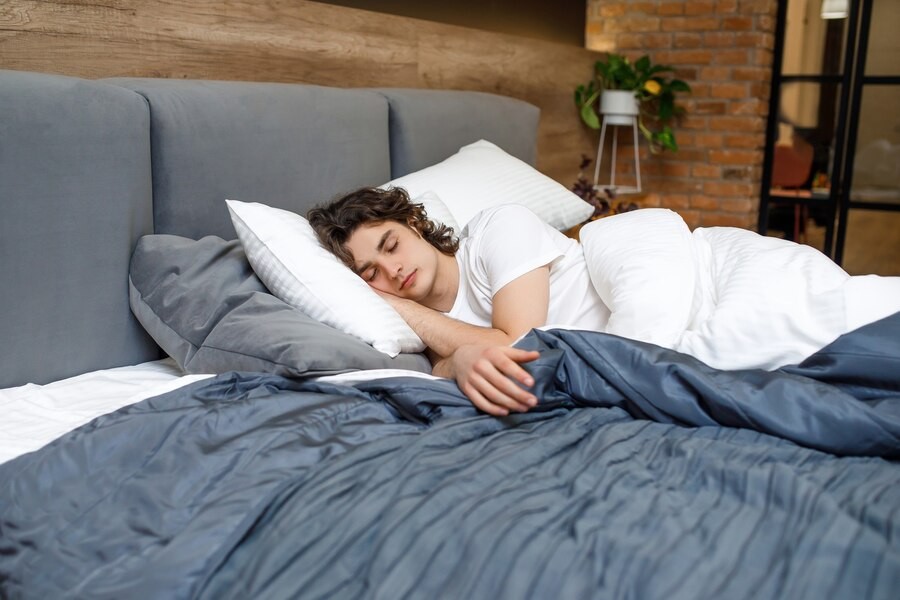Sleeping with the lights off or on may not make a significant difference for some people. Each individual has their preferences. However, sleeping with the lights on has been shown to affect the body significantly. Sleeping with lights on can make it difficult to get a good night's sleep, potentially increasing your risk of obesity.
Relationship between light and sleep
Relationship between Light and Sleep
The lighting in your bedroom can affect how well you sleep. Light can significantly impact a person's circadian rhythm, which is the biological rhythm that regulates various bodily processes, including sleep and wakefulness. These rhythms respond to environmental signals and are controlled by a small part of the brain known as the circadian pacemaker, which is heavily influenced by light exposure.
Everyone's biological clock becomes more sensitive to light about 2 hours before bedtime or 1 hour before you get up in the morning. When light enters the eye, some retinal cells transmit the stimulus to the brain, translated as morning, noon, or night time. The body will then adjust its rhythms to match the time of day, such as waking up, staying awake during the day, and sleeping at night.
The presence of light signals the body to wake up, and vice versa. As a result, prolonged exposure to artificial light, such as constant room lights or electronic device lights while sleeping, can cause circadian rhythms to become out of sync with the day-night cycle. This can cause the body to produce less melatonin, a hormone that regulates sleep.
When it is dark, the pineal gland in the brain produces melatonin, which signals the body to sleep by making it sleepy. However, light exposure reduces or stops the hormone's production if you sleep with the lights on. As a result, sleeping with the lights on can make it difficult to fall asleep or sleep well.
Read more: Food And Drinks To Avoid Before Bedtime
Long-term effects of sleeping with the lights on
Sleeping with the lights on does more than make it difficult to sleep well. Sleep is less restful and shorter, impacting the brain's sleep-related functions. Aside from directly affecting your brain, sleep deprivation caused by light exposure has also been linked to the following conditions:
Depression
Sleeping with lights on is frequently associated with an increased risk of depression. Room lights or blue lights from electronic devices near your bed can disrupt your mood and cause you to lose sleep. Poor sleep can leave you feeling uninspired, moody, or irritable.
Overweight
A study of women found that those who sleep with the TV or lights on have a higher risk of obesity. The study also found that people who sleep with the lights on have a 17% chance of gaining approximately 5 kg in a year. This is thought to be caused by increased food consumption due to a lack of sleep or inadequate sleep.
According to research, the less sleep you get, the more you eat the next day. This can also affect your eating habits, such as late at night, leading to weight gain.
Read more: How To Be Sleepy Regularly At Night
Risk of injury or accident
Inadequate or poor-quality sleep can reduce your alertness the next day. Sleep deprivation can put you at risk of injury or accident when operating machinery or driving a car. Sleep deprivation also raises the risk of falls in older adults. As a result, if you are sleep-deprived, you should avoid driving or operating machinery.
Increased risk of chronic diseases
According to Healthline, sleeping with the lights on for an extended period of time increases your risk of developing chronic diseases like high blood pressure (hypertension), heart disease, and type 2 diabetes.
Sleeping with lights on can disrupt your restful sleep. If you have sleep disorders, you should see a doctor or use the consultation feature in the AI Care application by downloading the Ai Care application from the App Store or Play Store.
Looking for more information about tips and tricks for health, first aid, and other home treatments? Click here
- dr Hanifa Rahma
Summer, J. (2023). Sleeping with the lights on. Available from: https://www.sleepfoundation.org/bedroom-environment/sleeping-with-the-lights-on#
Suni, E. (2023). Light and sleep. Available from: https://www.sleepfoundation.org/bedroom-environment/light-and-sleep
Cherney, S. (2019). Is sleeping with the lights on good or bad for you? . Available from: https://www.healthline.com/health/sleeping-with-the-lights-on
Chai, C. (2021). Blue Light: What Is It and How Does It Affect Your Sleep?. Available from: https://www.everydayhealth.com/sleep/blue-light-what-is-it-and-how-does-it-affect-your-sleep/











